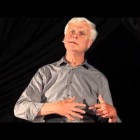Tag Archives:ptsd
Article: Not Hungry in the Morning - Dr. Kristen Allott, Naturopathic Physician share
 Nutrition is the cornerstone of good mental health. This is why it’s one of the first things I talk with my clients about when they start to work with me. Nobody is perfect, least of all me, but the more conscious we are about making sure to eat at least three meals a day, plus a few healthy snacks, the easier it will be for our mood to be calm and comfortable and out energy level to be active.
Nutrition is the cornerstone of good mental health. This is why it’s one of the first things I talk with my clients about when they start to work with me. Nobody is perfect, least of all me, but the more conscious we are about making sure to eat at least three meals a day, plus a few healthy snacks, the easier it will be for our mood to be calm and comfortable and out energy level to be active.
It’s not unusual, when I start to discuss this with my clients, for folks to tell me, “Well, I’m really not hungry in the morning.” Because breakfast so strongly sets the tone for our bodies for the rest of the day (because of chemical processes that need to be fueled in the morning, as well as other things), this is an issue that we need to tackle together.
In her article, Dr. Allott teaches us about why you actually aren’t feeling hunger, even though your body really does need more food. And, while she explains it in the context of breakfast, this is true for any time that our glucose level (“blood sugar”) goes low and kicks off a process in our liver that taps into our body’s emergency reserves.
PS – While you are on her site, you may want to explore. She has TONS of free resources available that really help to illustrate the connection between nutrition and mood.
TED Talk: How Childhood Trauma Affects Health Across a Lifetime by Nadine Burke Harris, MD share
Dr. Nadine Burke Harris is a pediatrician who explains how repeated stress of abuse, neglect and parents struggling with mental health or substance abuse issues has real, tangible effects on the development of the brain and the body. She calls for, of course, prevention, routine screenings, and using this knowledge to guide medical screenings and interventions.
This information is based on a massive study done by the CDC (Center for Disease Control), that took a look at the potential long-term impact of childhood trauma. You can take a deeper dive into this information on the CDC website.
If you are interested in looking into what your ACES score is, you can see the questionnaire here. ** Important Note: If you have a history of trauma in your life you may feel uncomfortable or get upset when taking this questionnaire. I recommend that you consult with a mental health professional to guide you through this process.
If you found this interesting or helpful, you may also want to check out another post on my site, Oprah Learns about the Life-Long Impact of Developmental Trauma.
Oprah Learns about the Life-Long Impact of Developmental Trauma share
Treating childhood trauma
In the video above, Oprah is getting the word out about about the impact of chronic trauma experienced during a person’s childhood. She is promoting
a piece that she did for 60 minutes that you can watch if you have access to CBS online. In the piece, she learns from trauma expert, Dr. Bruce Perry, that kids who have considerable chronic trauma in their young lives are at significantly higher risk of “almost any kind of physical health, mental health, social health problem that you can think of.” She also learns, that the more people learn about being able to take a “trauma-informed” perspective of people you encounter in the world, the more you can promote healing in others or, at the very least, not add to their struggles.
This information is based on a massive study done by the CDC (Center for Disease Control), that took a look at the potential long-term impact of childhood trauma. You can take a deeper dive into this information on the CDC website.
If you are interested in looking into what your ACES score is, you can see the questionnaire here. ** Important Note: If you have a history of trauma in your life you may feel uncomfortable or get upset when taking this questionnaire. I recommend that you consult with a mental health professional to guide you through this process.
If you found this interesting or helpful, you may also want to check out another post on my site, TED Talk: How childhood trauma affects health across a lifetime by Nadine Burke Harris, MD.
TEDx Talk: Feeling Good presented by David Burns, MD share
Cognitive Behavioral Therapy (CBT) is based on the premise that our thoughts, emotions, and behavior are all interrelated and affect one another. Because of this, if we learn to identify when we are having “thought errors” that distort our perception of reality, often skewing to seeing things in more a negative light, we can then Dr. David Burns is a well known researcher, clinician, and public speaker. He is one of the leaders in the development of CBT, having been trained personally by CBT’s founder, the world-renowned Aaron T. Beck, MD. In this short video, Dr. Burns uses stories from his life experience both as a clinician and as a person, to illustrate the power of CBT and how working to change our thoughts, in a real and genuine way, can have a profoundly positive effect on how we feel. CBT has become the strongest (most likely to succeed), “evidence-based” form of therapy for issues such as depression and Bipolar Disorder, various forms of anxiety (PTSD, phobias, Obsessive-Compulsive Disorder), eating disorders, and substance use disorders. This means that scientific research has been able to document that CBT really works for people.




